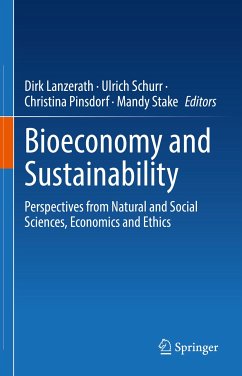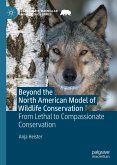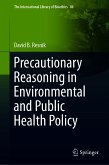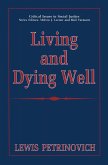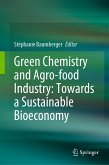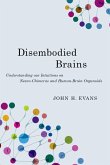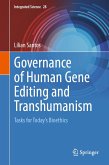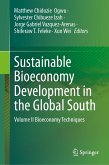Bioeconomy and Sustainability (eBook, PDF)
Perspectives from Natural and Social Sciences, Economics and Ethics
Redaktion: Lanzerath, Dirk; Stake, Mandy; Pinsdorf, Christina; Schurr, Ulrich


Alle Infos zum eBook verschenken

Bioeconomy and Sustainability (eBook, PDF)
Perspectives from Natural and Social Sciences, Economics and Ethics
Redaktion: Lanzerath, Dirk; Stake, Mandy; Pinsdorf, Christina; Schurr, Ulrich
- Format: PDF
- Merkliste
- Auf die Merkliste
- Bewerten Bewerten
- Teilen
- Produkt teilen
- Produkterinnerung
- Produkterinnerung

Hier können Sie sich einloggen

Bitte loggen Sie sich zunächst in Ihr Kundenkonto ein oder registrieren Sie sich bei bücher.de, um das eBook-Abo tolino select nutzen zu können.
In this edited volume, scientists from different disciplines discuss modern biotechnological processes and a knowledge-based bioeconomy. The authors base their arguments on ecological, economic, legal, social and ethical aspects. Moreover, they explore the opportunities, risks, and challenges of bioeconomic concepts and biotechnologies in many subject areas. The chapters consider land use, nature and environment, nutrition, technology and governance, energy, economy, law and regulation, as well as ethics. A special focus should be on new technologies and how they can be used, without…mehr
- Geräte: PC
- ohne Kopierschutz
- eBook Hilfe
- Größe: 6.24MB
![Beyond the North American Model of Wildlife Conservation (eBook, PDF) Beyond the North American Model of Wildlife Conservation (eBook, PDF)]() Anja HeisterBeyond the North American Model of Wildlife Conservation (eBook, PDF)89,95 €
Anja HeisterBeyond the North American Model of Wildlife Conservation (eBook, PDF)89,95 €- -31%11
![Precautionary Reasoning in Environmental and Public Health Policy (eBook, PDF) Precautionary Reasoning in Environmental and Public Health Policy (eBook, PDF)]() David B. ResnikPrecautionary Reasoning in Environmental and Public Health Policy (eBook, PDF)73,95 €
David B. ResnikPrecautionary Reasoning in Environmental and Public Health Policy (eBook, PDF)73,95 € ![Living and Dying Well (eBook, PDF) Living and Dying Well (eBook, PDF)]() Lewis PetrinovichLiving and Dying Well (eBook, PDF)113,95 €
Lewis PetrinovichLiving and Dying Well (eBook, PDF)113,95 €![Green Chemistry and Agro-food Industry: Towards a Sustainable Bioeconomy (eBook, PDF) Green Chemistry and Agro-food Industry: Towards a Sustainable Bioeconomy (eBook, PDF)]() Green Chemistry and Agro-food Industry: Towards a Sustainable Bioeconomy (eBook, PDF)178,95 €
Green Chemistry and Agro-food Industry: Towards a Sustainable Bioeconomy (eBook, PDF)178,95 €![Disembodied Brains (eBook, PDF) Disembodied Brains (eBook, PDF)]() John H. EvansDisembodied Brains (eBook, PDF)19,95 €
John H. EvansDisembodied Brains (eBook, PDF)19,95 €![Governance of Human Gene Editing and Transhumanism (eBook, PDF) Governance of Human Gene Editing and Transhumanism (eBook, PDF)]() Lílian SantosGovernance of Human Gene Editing and Transhumanism (eBook, PDF)97,95 €
Lílian SantosGovernance of Human Gene Editing and Transhumanism (eBook, PDF)97,95 €![Sustainable Bioeconomy Development in the Global South (eBook, PDF) Sustainable Bioeconomy Development in the Global South (eBook, PDF)]() Sustainable Bioeconomy Development in the Global South (eBook, PDF)161,95 €
Sustainable Bioeconomy Development in the Global South (eBook, PDF)161,95 €-
-
-
To do justice to this broad array of topics, the editors frame all topics in overarching introductions and close the volume with final conclusions. Thereby this volume offers data and critical thoughts for any member of a Bioeconomy - be it from academia, the industry or public regulation.
Dieser Download kann aus rechtlichen Gründen nur mit Rechnungsadresse in A, B, BG, CY, CZ, D, DK, EW, E, FIN, F, GR, HR, H, IRL, I, LT, L, LR, M, NL, PL, P, R, S, SLO, SK ausgeliefert werden.
- Produktdetails
- Verlag: Springer International Publishing
- Seitenzahl: 380
- Erscheinungstermin: 27. März 2022
- Englisch
- ISBN-13: 9783030874025
- Artikelnr.: 63664810
- Verlag: Springer International Publishing
- Seitenzahl: 380
- Erscheinungstermin: 27. März 2022
- Englisch
- ISBN-13: 9783030874025
- Artikelnr.: 63664810
- Herstellerkennzeichnung Die Herstellerinformationen sind derzeit nicht verfügbar.
